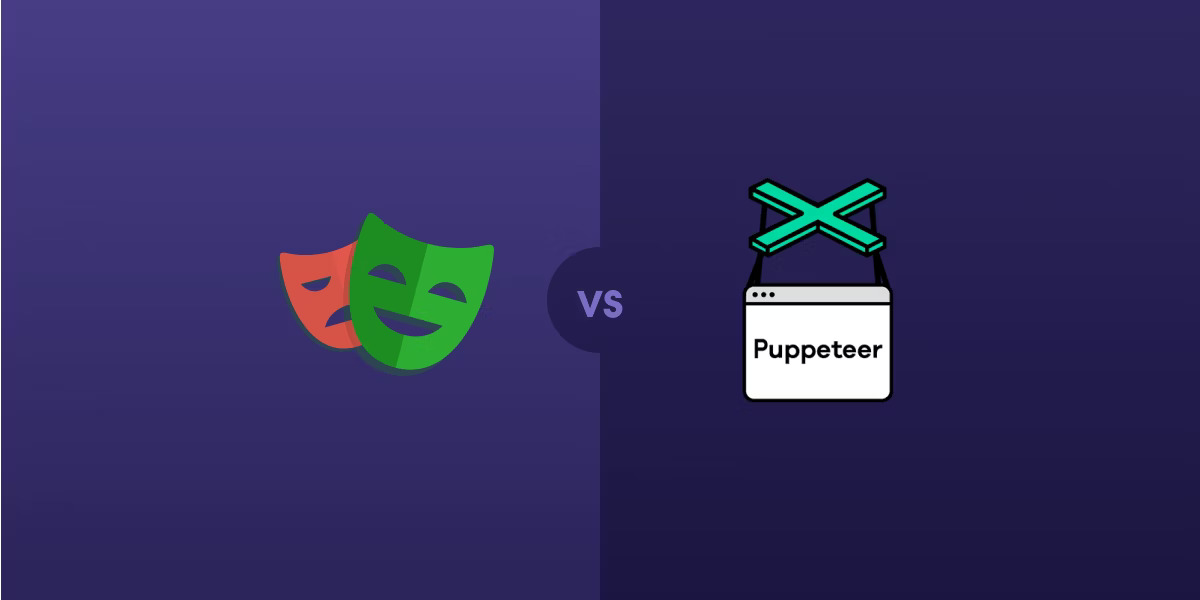In this age of big data, web scraping has become a crucial method of aggregating data from the internet. Web scraping is the process of extracting data from websites for a variety of purposes, such as market research, price comparison, and competitive analysis.
With hundreds of libraries and frameworks available, not all web scraping tools are the same. Some tools are more efficient, faster, dependable, or adaptable than others. Consequently, it is essential that you select the best web scraping technology that is relevant to your goal.
here we will compare Two popular web scraping tools, Playwright vs Puppeteer, to help you understand which of the two is best for your needs.
What is Playwright?
The playwright is an open-source NodeJS-based framework developed by Microsoft. It offers cross-browser compatibility, built-in support for headless mode, auto-waiting, and network interception, amongst other robust features. The playwright can also handle complex scraping tasks involving authentication, dialogs, frames, shadow DOMs, and web workers to efficiently scrape data. Because of its powerful features, it is suitable for a wide range of web scraping scenarios.
What is Puppeteer?
Google’s Puppeteer is another well-known data extraction tool. Puppeteer is a high-level web scraping API that is built on NodeJS and powered by Chromium, the open-source project that powers Google Chrome. It provides full browser control, allowing you to programmatically explore webpages, interacts with items, and aggregate data. Puppeteer can also be customized and extended by integrating with other tools, such as Cheerio. It also includes additional capabilities, such as auto-waiting, network interception, screenshots, video capture, and emulation.
Playwright vs. Puppeteer: Key Differences and Similarities
Both Playwright and Puppeteer are excellent web scraping tools that have many similarities. they also have some essential differences that may affect your decision on which one to use. The following are some of the significant similarities and differences between these two tools.
Both libraries are well-known for their high performance, quick response times, and capacity to handle massive volumes of data and web automation tasks. Some benchmarks indicate that Playwright has faster execution times and may have a slight speed and memory use advantage over Puppeteer. This advantage results from Playwright’s ability to concurrently run automation tasks in multiple browser contexts.
Browser support is one of the primary distinctions. Playwright supports different web browsers, including Chromium, Firefox, and WebKit, allowing you to scrape websites in various contexts, meaning that you can run your Playwright web scraping code on different browsers and platforms without changing much of it. Meanwhile, Puppeteer only supports Chromium-based browsers, such as Chrome and Edge.
Another major difference is the support for multiple programming languages. Puppeteer is based on NodeJS and primarily supports only JavaScript or TypeScript. In contrast, Playwright supports multiple programming languages, including JavaScript, TypeScript, Python, C#, and Java, giving it the upper hand in this aspect.
Both frameworks have impressive features for scraping data from most websites on the internet, but Puppeteer has more capabilities that make it more suited for scraping data from complex apps with advanced anti-bot systems.
Generally, Playwright is more versatile with exciting features such as various multi-language and browser support and parallelization. Puppeteer provides integration with other web scraping tools, an exciting feature that’s unique to it. It also enables the automation of a wide variety of operations, such as saving scraped data in different formats and evaluating custom JavaScript code in the browser. Both of these tools are actively developed; hence, new features are added on a regular basis.
Ease of use is another key aspect to consider. Puppeteer has a slight advantage over Playwright. Puppeteer’s API is straightforward, easy to use, and well-documented, making it more suitable for beginners to get started quickly. While it also has well-written documentation, Playwright requires additional effort to understand and use its more advanced features and concepts.
Which tool should you go with?
There’s no universal answer to this question. However, the following broad suggestions may assist you in making the proper decision:
- Choose Playwright if you need a fast and dependable web scraping technology that works with different browsers and languages.
- If you’re looking for a widely used and supported web scraping tool that interfaces with many libraries and frameworks, choose Puppeteer.
- If what you need is an extensible and powerful web scraping tool to handle complex tasks, choose Puppeteer.
The web scraping industry is growing as a result of the increasing need to collect data for various business purposes. Amongst the many tools facilitating this purpose are Playwright and Puppeteer. This article summarised the main similarities and differences to help you understand which one is the right fit for your project.
































































